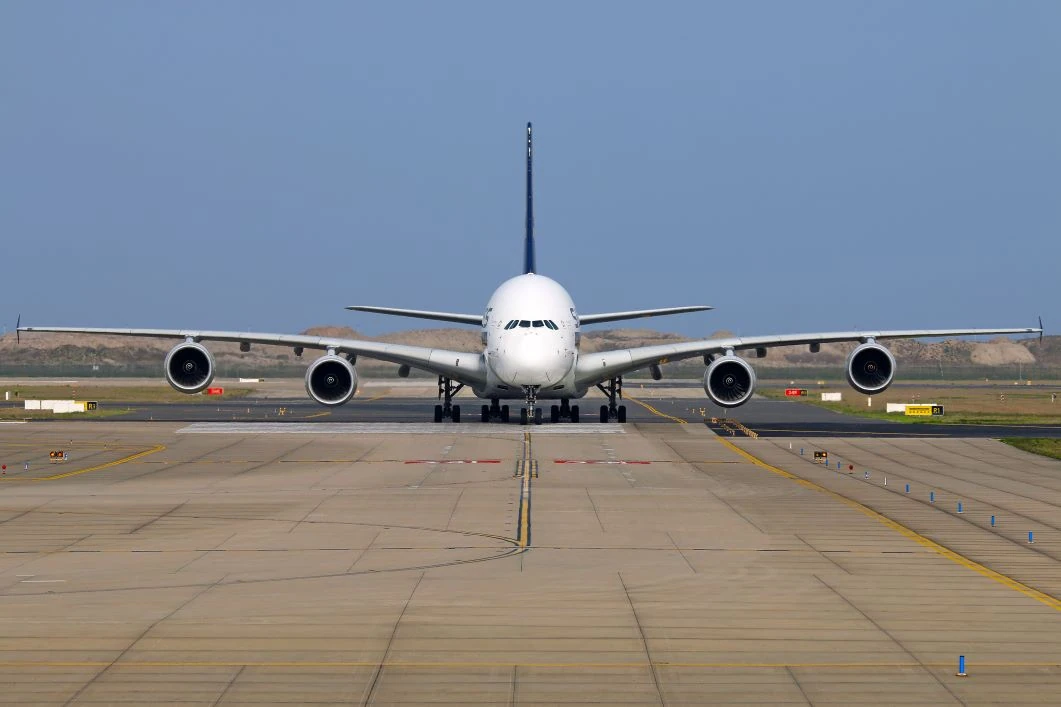Your Genesys Blog Subscription has been confirmed!
Please add genesys@email.genesys.com to your safe sender list to ensure you receive the weekly blog notifications.
Subscribe to our free newsletter and get blog updates in your inbox
Don't Show This Again.

In the fast-paced and highly competitive airline industry, delivering an exceptional customer experience has become a critical differentiator for airlines seeking to gain a competitive edge. As the industry continues to evolve, the integration of artificial intelligence (AI) is poised to revolutionise the way airlines interact with their customers, both on the front lines and behind the scenes.
Airline contact centres have long been the primary interface between airlines and their customers, handling a myriad of inquiries, from flight bookings and ticket changes to customer complaints and travel disruptions. However, the introduction of AI-powered technologies is set to transform the role of contact centre agents, enhancing their capabilities and streamlining their workflows.
One of the most significant impacts of AI on contact centre agents is the implementation of intelligent chatbots and virtual assistants. These AI-powered systems can handle a wide range of customer inquiries, from providing real-time flight information to assisting with booking modifications, all while offering a seamless and personalised experience. By automating repetitive tasks and responding to common questions, chatbots can help alleviate the workload of contact centre agents, allowing them to focus on more complex and nuanced customer interactions.
Moreover, AI-driven predictive analytics can empower contact centre agents with valuable insights into customer behavior and preferences. By analysing vast amounts of customer data, airlines can anticipate customer needs and proactively address them, leading to increased customer satisfaction and reduced call volumes. Armed with this data-driven intelligence, agents can provide more personalised and efficient service, tailored to the individual customer’s requirements.
The impact of AI on the customer experience extends far beyond the confines of the contact centre. Airlines are increasingly integrating AI-powered technologies into various touchpoints throughout the customer journey, from the initial booking process to post-travel interactions.
One of the most prominent applications of AI in the airline industry is the use of chatbots and virtual assistants to enhance the booking and planning experience. Customers can now engage in natural language conversations with AI-powered systems to explore flight options, compare prices, and even make reservations, all without the need for direct human intervention. These intelligent assistants can provide real-time updates, offer personalised recommendations, and even assist with ancillary purchases, such as seat upgrades and in-flight amenities.
Furthermore, AI is being leveraged to optimise the airport experience for passengers. Intelligent baggage tracking systems, powered by AI and the Internet of Things (IoT), can provide customers with real-time updates on their luggage’s location, reducing the anxiety and frustration often associated with lost or delayed baggage. Similarly, AI-powered facial recognition and biometric technology can streamline the boarding process, allowing for faster and more efficient passenger verification.
Beyond the airport, AI is also transforming the post-travel customer experience. By analysing customer feedback and sentiment, airlines can use AI to proactively address any issues or concerns, ensuring that customers feel valued and heard. Additionally, AI-powered personalisation can enable airlines to provide tailored offers, such as special promotions or loyalty program incentives, based on an individual’s travel history and preferences.
As the airline industry continues to navigate the challenges of the post-pandemic landscape, the integration of AI-powered technologies will play a pivotal role in shaping the future of customer experience. By automating routine tasks, empowering contact centre agents, and delivering personalised and seamless interactions, AI has the potential to transform the way airlines engage with their customers, ultimately leading to greater customer satisfaction, loyalty, and advocacy.
However, the successful implementation of AI in the airline industry will require a careful balance between technology and human touch. While AI can enhance efficiency and streamline processes, it is essential for airlines to maintain a strong human-centric approach, ensuring that customers feel valued and understood throughout their interactions. By striking this balance, airlines can harness the power of AI to elevate the customer experience and secure their position in an increasingly competitive market.
Learn how to make AI work for your customers, your employees and your organisation.

Subscribe to our free newsletter and get the Genesys blog updates in your inbox.